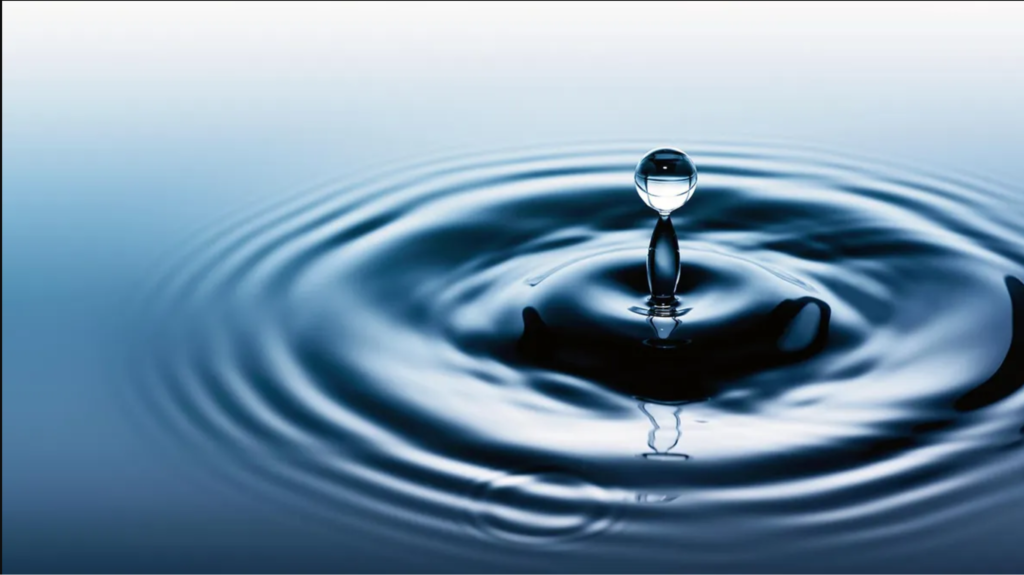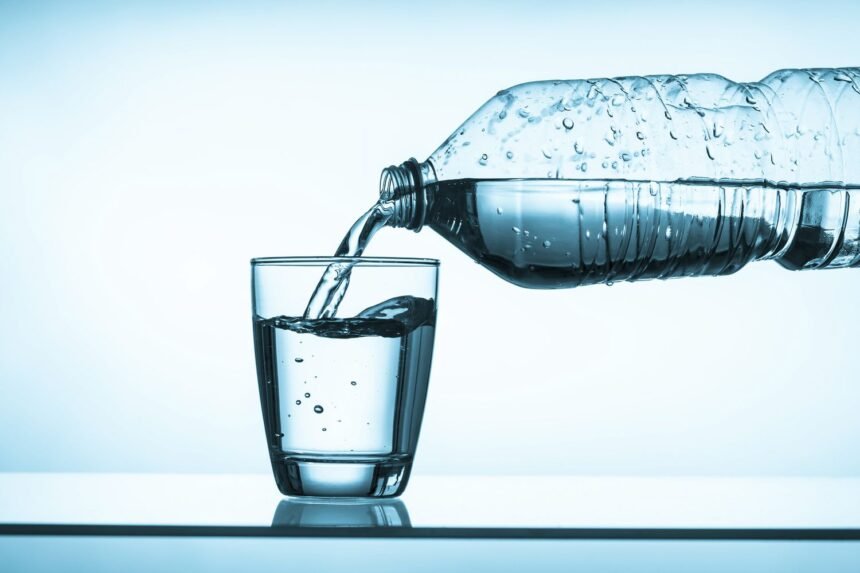Water is one of the most common and essential substances on Earth. It covers about 71% of the planet’s surface, and it makes up about 60% of the human body. It is also involved in many physical, chemical, and biological processes, such as evaporation, condensation, dissolution, and hydration. But despite its ubiquity and importance, water still has some mysteries and paradoxes that puzzle scientists and laypeople alike. One of them is the question: is water actually wet?
Science around water
At first glance, this question may seem trivial or even nonsensical. After all, we all know what water is, and we all have experienced its wetness. But when we try to define what wetness is, and what it means for water to be wet, we may encounter some difficulties and disagreements. Wetness is not a clear-cut or objective property, but rather a subjective or relative one, that depends on how we perceive, describe, and measure it. Wetness is also not a universal or fixed phenomenon, but rather a contextual or variable one, that depends on the conditions, interactions, and perspectives of the system. Therefore, the answer to the question of whether water is wet or not may not be as simple or straightforward as we might think.
Also read : The End Of Becoming Older? Medication To Counteract Your Ageing Is Being Developed By A New AI

There are different ways to approach this question, depending on the perspective, criteria, and level of analysis we adopt. For example, we can use a linguistic, a physical, or a biological perspective, and we can use a semantic, a thermodynamic, or a sensory criteria, and we can use a macroscopic, a microscopic, or a molecular level of analysis. Depending on the combination of these factors, we may get different and even contradictory answers. Here are some possible answers, based on some common perspectives, criteria, and levels of analysis:
- Linguistic perspective, semantic criteria, macroscopic level of analysis: Water is wet, because wetness is the state or condition of being covered or saturated with water or another liquid, and water is a liquid that can cover or saturate other things, including itself. This is the most common and intuitive answer, based on the everyday use and meaning of the word “wet”
- Physical perspective, thermodynamic criteria, microscopic level of analysis: Water is not wet, because wetness is the transfer or exchange of heat or energy between a liquid and a solid surface, and water is a liquid that cannot transfer or exchange heat or energy with itself. This is a more scientific and technical answer, based on the physical and chemical properties and behavior of water and other liquids
- Biological perspective, sensory criteria, molecular level of analysis: Water is both wet and not wet, because wetness is the sensation or perception of a liquid on a living tissue, and water is a liquid that can cause or not cause such sensation or perception, depending on the type, state, and amount of water and tissue involved. This is a more complex and nuanced answer, based on the biological and psychological mechanisms and factors that influence the experience and interpretation of wetness

As we can see, the question of whether water is wet or not is not a simple or straightforward one, but rather a complex and dynamic one, that involves multiple aspects and dimensions of water and wetness. The answer may vary depending on the perspective, criteria, and level of analysis we use, as well as on the context, situation, and purpose of the question. Therefore, there is no definitive or conclusive answer to this question, but rather a range of possible and plausible answers, that may or may not agree with each other.
FAQ
Is Water Actually Wet? Scientists Aren’t Sure
The question of whether water is inherently wet may seem straightforward, but delving into the intricacies of this concept reveals a fascinating and, surprisingly, not entirely settled debate within the scientific community. While the conventional understanding suggests that water is wet, scientists grapple with the philosophical and linguistic aspects of the term “wet” and how it applies to the nature of water.
The Conventional Wisdom: Water is Wet
The everyday experience leads us to believe that water is, indeed, wet. When we touch water, it adheres to our skin, and when we come out of the water, we feel wet. This tactile sensation has ingrained the notion that water possesses the quality of wetness.
. Defining “Wet”: A Matter of Perspective
The crux of the debate lies in how one defines “wet.” If we consider wetness as the state of being covered or saturated with a liquid, then water, by definition, can be deemed wet. However, this perspective opens a linguistic and philosophical discussion about whether a substance can be considered wet if it doesn’t inherently make other things wet.
The Unique Nature of Water: A Solvent Paradox
Water is renowned as the “universal solvent” due to its ability to dissolve a wide range of substances. This characteristic makes water essential for life, but it also adds complexity to the question of wetness. When water comes into contact with another material, it can make that material wet, raising the question of whether water itself possesses wetness.
Philosophical Considerations: Inherent vs. Relative Wetness
Philosophically, the debate revolves around whether wetness is an inherent property of water or a relational quality. If wetness is inherent, water should be wet by itself. If wetness is relational, water is only wet when it comes into contact with another objec
Scientific Inquiry: The Debate Continues
Scientists are not unanimous in their stance on the wetness of water. Some argue that water is wet because it adheres to surfaces, while others contend that water’s ability to make things wet does not necessarily mean it is intrinsically wet. The debate encompasses perspectives from physics, chemistry, and linguistics.
Surface Tension and Adhesion: Wetness in Action
Surface tension and adhesion, properties of water, contribute to the wetting of surfaces. Water molecules are attracted to each other, creating surface tension, and they adhere to other materials, leading to the phenomenon of wetness. However, whether these properties make water inherently wet remains an open question.
Linguistic Ambiguity: Impact on Perception
The debate is further complicated by linguistic ambiguity. The definition of “wet” varies, and individual perceptions of the term influence one’s conclusion about water’s wetness. Resolving the question requires a nuanced understanding of both the scientific and linguistic aspects involved.
. Practical Implications: Does it Matter if Water is Wet?
In practical terms, the debate over whether water is wet might seem like a semantic exercise. However, addressing this question can refine our understanding of fundamental properties of matter, language, and how we interpret the world around us.
The Complexity of a Simple Question
The seemingly simple question, “Is water wet?” unveils the complexity of scientific inquiry and the interplay between language, philosophy, and empirical observation. While everyday experiences may suggest a straightforward answer, scientists continue to explore the nuances that make water such a fascinating substance.
Conclusion: A Question Worth Pondering
As scientists navigate the realms of physics, chemistry, and language, the question of whether water is wet remains open-ended. The pursuit of understanding the nature of water not only enriches scientific discourse but also invites us to contemplate the intricacies of seemingly simple concepts in our quest for knowledge.
Also read : The Rainbow Tree’s Peculiar Scientific Basis




































